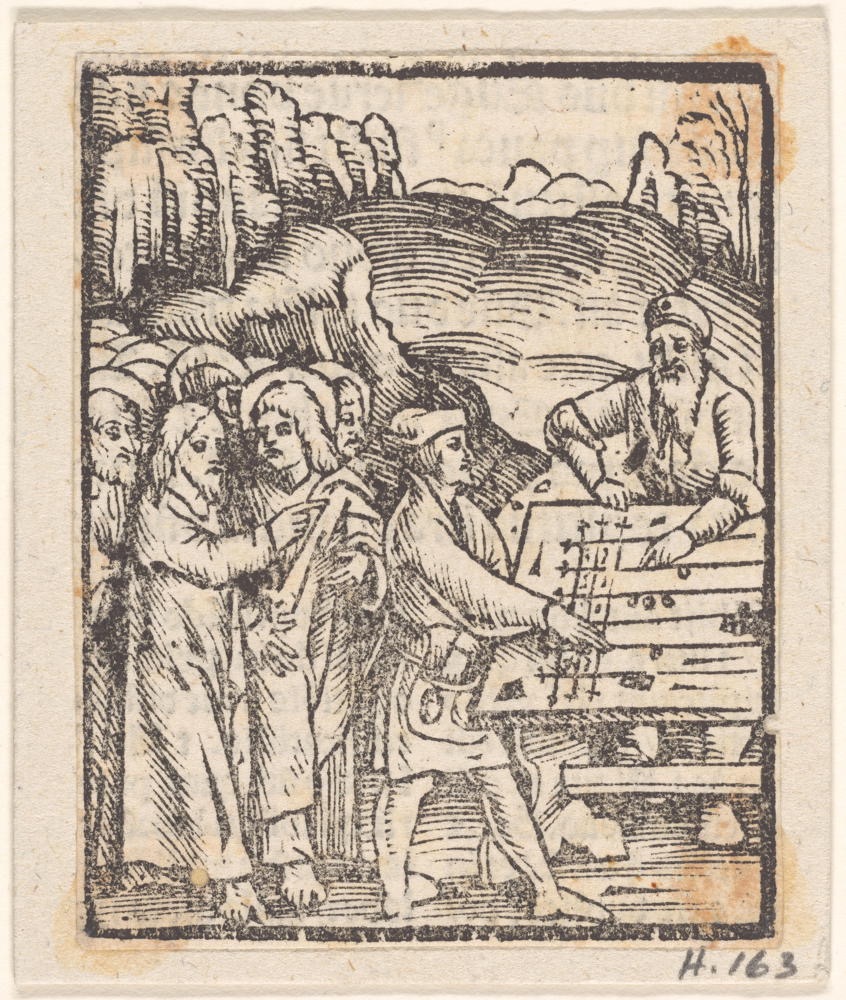Stewarding

Urs Graf: The Parable of the Unjust Steward (1511 - 1515)
The Miriam and Ira D. Wallach Division of Art, Prints and Photographs: Print Collection, The New York Public Library. (1511 - 1515). The Parable of the Unjust Steward Retrieved from https://digitalcollections.nypl.org/items/9dfc8bf0-a38f-0134-34b1-00505686a51c
"My conscience should leave this season aware of my shortcomings and successes."
Everyone in this world has the same job, the identical responsibility that transcends their occupation, profession, and "real job." Likewise, we hold responsibilities before and beyond mere ownership, however much or little we might manage to accumulate. Rich or poor, high or low-born, we remain steadfastly equivalent from birth until we die. We are each first and foremost Stewards.
Ownership might be an encumbrance to stewardship, since it suggests some forms of authority over property. Still, property holds superior authority over its owner, and subtly holds that owner responsible for answering to the property's higher requirements. Of course, an owner might choose to despoil his property, thereby violating his Stewarding responsibilities, and nobody might hold that deficient owner responsible for his desecration, but he has not escaped scot-free. The purpose of Stewarding was never intended to serve as an excuse to punish, but to serve as the template for constructing and maintaining a well-formed conscience.
A well-formed conscience serves as the underlying jurisprudence in this universe. It tells us what's right and what isn't. It informs our decisions. Hell is defined as the state operating without a well-formed conscience. It is first ignorance. Only later does it metastasize into genuine malfeasance. Our obedience to any conscience depends upon a particular discipline, an ability to forego certain hungers, to defer gratification rather than approach our world ravenously. The garden I own retains certain rights, among them, the right to water and reasonable tending, including the right to be weeded. I struggle sometimes to live up to this ideal, though it seems perfectly reasonable. Nor is it contingent upon my necessarily feeling like engaging. Stewarding amounts to a form of self-imposed abrogation. It is the fundamental basis of civilization. Its absence encourages chaos.
Decency, for me, means attending to my Stewarding, whatever other obligations might have managed to elbow their way into my queue. It's what I do. It's what I'm doing when I get up in the middle of the night to consider what I should be writing that morning. It's the overriding reason I cannot stay in bed without suffocating in guilty feelings. This responsibility isn't to or necessarily for anybody. It's merely my inheritance and my legacy. It's what I do, whether excellently or poorly. I enjoin myself to attend to my Stewarding, understanding that my tenancy will inescapably be temporary and somebody else will step into my place once I leave. I hold a responsibility to that somebody else, whoever they might be in whatever guise they arrive, though my world, this world, will no more belong to them than it ever belonged to me.
I am not merely a renter. The bank might hold title to my property pending repayment of the mortgage, but I do not deceive myself into believing that I'm purchasing more than the right to inhabit this place for the purpose of practicing my Stewarding activities. These are the sorts of practices I have no intention of perfecting, for, properly engaged in, they should leave me feeling like a novice. This place keeps trying to teach me about myself and about its needs. I usually feel guilty when, as summer recedes, I can so clearly see my Stewarding shortcomings surrounding me. The afternoons, so blisteringly hot that I successfully argued myself out of weeding. The mornings when I couldn't bring myself to get on my knees. The evenings when I neglected to sufficiently tidy up the place before retiring. These accumulate.
Autumn tends to be the season of atonement—the time when the sum of my shortcomings require redressing. The gardens will be reset to back just before the beginning, pruned and stripped bare of their most significant shortcomings. The deep freeze should cauterize the wound, once the leaves have been carefully removed and the remaining yard shines through, naked. The porch remodel might be finished by first frost. The construction clutter in front of the garage should be fully resolved before first snow. Lights might cast shadows upon spaces seemingly preserved by grace. I will have worked off whatever guilt accumulated over the overwhelming summer. I will rest fitfully, over-anxious to please whatever deity oversees my Stewarding. My conscience should leave this season aware of my shortcomings and successes.
©2025 by David A. Schmaltz - all rights reserved


